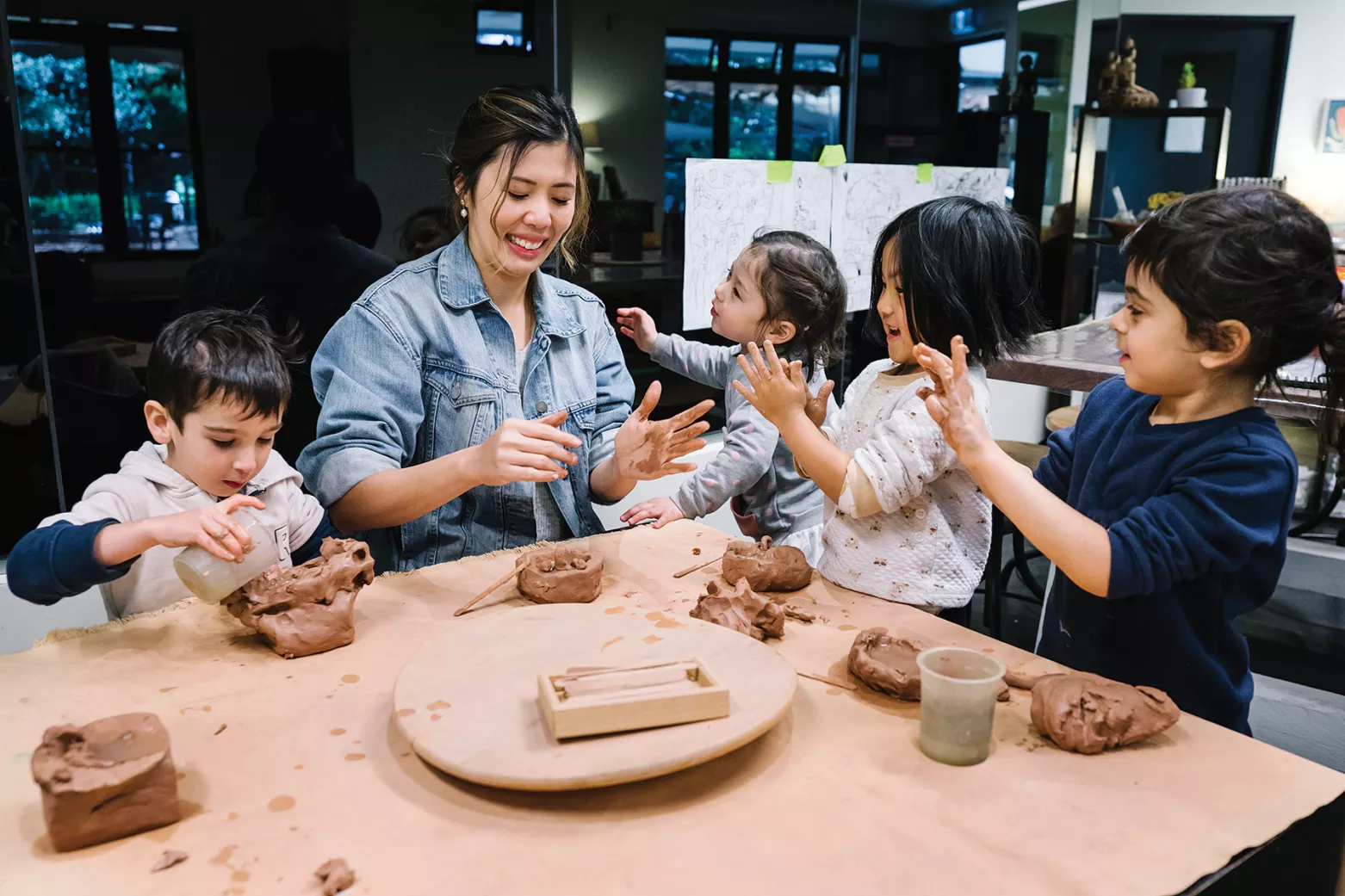- Home
- BELONGING, BEING & BECOMING - THE EARLY YEARS LEARNING FRAMEWORK
- (EYLF) EARLY CHILDHOOD PEDAGOGY
Table of contents
- BELONGING, BEING & BECOMING - THE EARLY YEARS LEARNING FRAMEWORK
- (EYLF) INTRODUCTION
- (EYLF) A VISION FOR CHILDREN'S LEARNING
- (EYLF) ELEMENTS OF THE EARLY YEARS LEARNING FRAMEWORK
- (EYLF) EARLY CHILDHOOD PEDAGOGY
- (EYLF) PRINCIPLES
- (EYLF) PRACTICES
- (EYLF) THE EARLY YEARS LEARNING FRAMEWORK PLANNING CYCLE
- (EYLF) LEARNING OUTCOMES
- (EYLF) GLOSSARY OF TERMS
- (EYLF) REFERENCES
Need help using the guide? Visit our help section.
(EYLF) EARLY CHILDHOOD PEDAGOGY

The term pedagogy in this Framework refers to the art, science or craft of educating. It describes the professional knowledge, practices and creativity that educators use to intentionally foster and nurture children’s learning, development and wellbeing. When educators establish respectful relationships with children and their families, they are able to work together to use relational and place-based pedagogies that assist in developing curriculum relevant to children in their local context. Using these pedagogies and other child-centred approaches supports curriculum decisions that include children’s ideas and reflect their curiosity, allowing them to celebrate their own interests, friendships and express themselves in different ways.
Educators’ professional judgements are central to their active role in facilitating children’s learning. In making professional judgements, they intentionally weave together their:
- professional knowledge and skills
- contextual knowledge of each child, their families and communities
- understanding that relationships with children and families are critical to creating safe and trusting spaces
- awareness of how their beliefs and values impact children’s learning and wellbeing
- knowledge and understanding of Aboriginal and Torres Strait Islander perspectives
- personal styles and past professional experiences
- use of all components in the planning cycle.
Alongside their professional knowledge educators draw on their creativity, intuition and imagination, including engaging in critical reflection to evaluate and adjust their practice to suit the learners, the time, place and context of learning